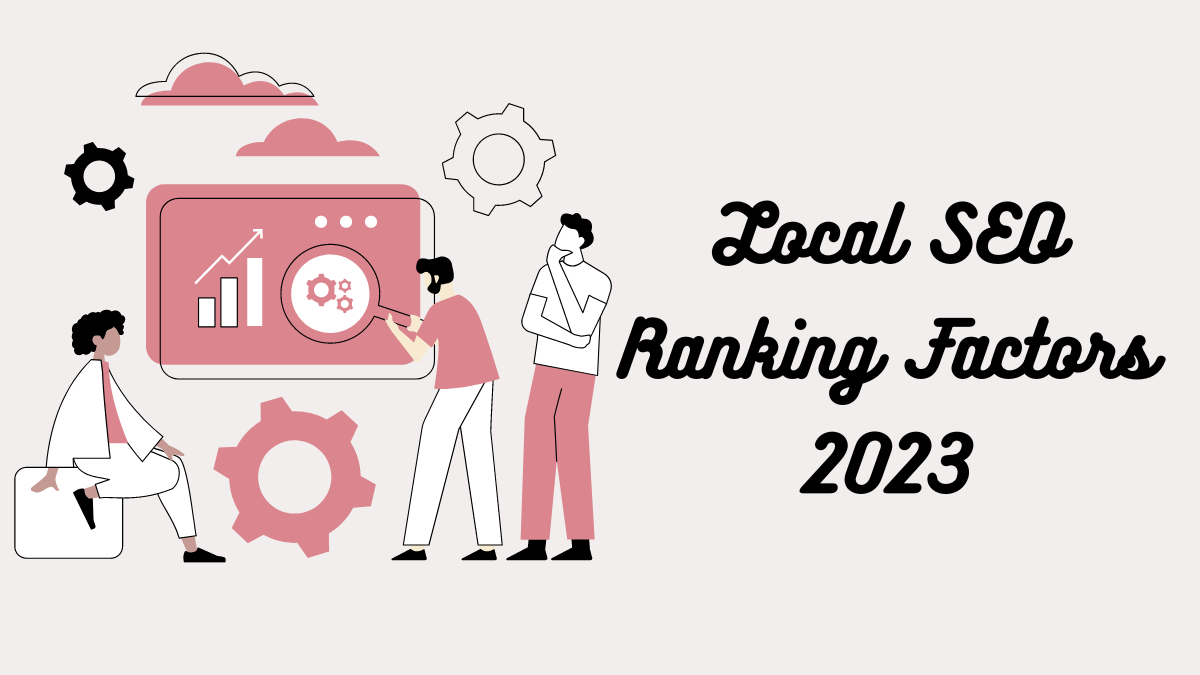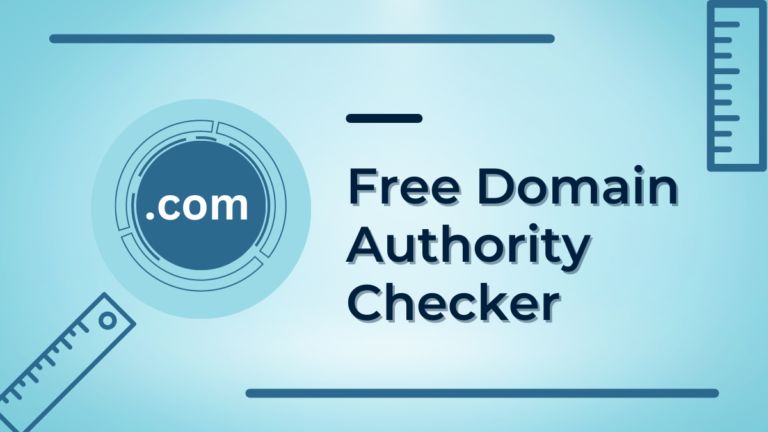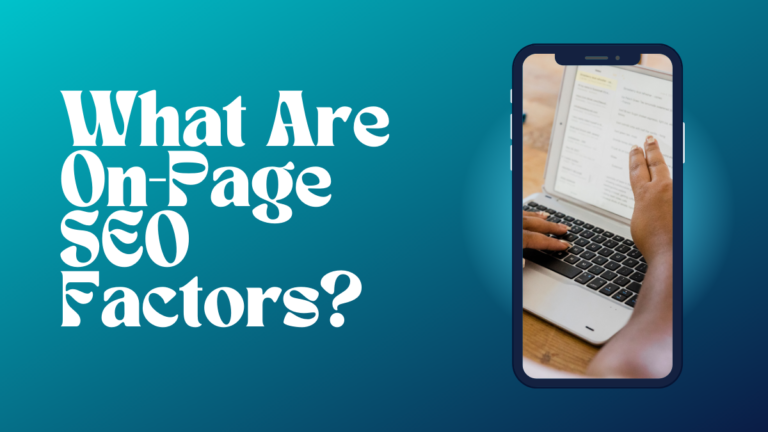Local SEO Ranking Factors 2023
Are you ready to take your local business to new heights in 2023? Well, get ready to dive into the world of Local SEO ranking factors and discover the key elements that will skyrocket your online visibility!
In this blog post, we’ll uncover the latest trends and strategies that will dominate the local search landscape in 2023. From optimizing your Google My Business profile to mastering voice search optimization, we have all the insider tips and tricks you need to outrank your competition.
So grab a cup of coffee, sit back, and let’s unlock the secrets behind achieving top rankings in local searches for a prosperous year ahead!
Table of Contents
What is Local SEO?
Local SEO is the practice of optimizing a website for local search results. This means making sure that your website content is relevant to the surrounding area, and that your website is well-optimized for local search.
There are a number of factors that can affect a site’s ranking in local searches, including:
- The geographic location of the site’s visitors.
- The topicality of the site’s content.
- The quality of the site’s search engine optimization (SEO).
- The quantity and quality of information on the site.
- The prominence of the site in search engine results pages (SERPs).

The 4 Categories of Local SEO
- Title Tag: All of your website’s titles are important, and as local SEO experts know, the title tag is the first thing that a user sees when they visit your website. This is why it’s so important to make sure that your title tags are well-optimized for local searches. To get started, use Google’s “Title Tag Generator” to get an idea of how long your title should be and what keywords you should include. Once you have a good idea of what to include in your title tags, take some time to test them on different search engines and compare results.
- Meta Description: Meta descriptions are similar to title tags in that they play an important role in influencing ranking. When a user visits a website, the first thing they see is the meta description, which is just a brief description of the page itself. Meta descriptions can be up to 160 characters long and should include keywords relevant to your website category (for example, if you sell health products, include keywords like “healthy recipes” or “detoxification tips”). Again, Google has a handy tool called “Meta Description Generators” that can help you determine what keywords to target in your meta description.
- Image Alt Tags: When users click on images on your site, their browser will usually display the image alt text (also known as alternate text), which is a brief description of the image. For local SEO purposes, it’s important to make sure that your image alt tags are properly optimized for local searches. This means including keywords in the alt tag and making sure that the alt tag is descriptive enough to be useful to users.
- Link Building: One of the most important aspects of local SEO is link building. This means acquiring links from other websites that are relevant to your target market. The best way to build links is by submitting your website to relevant directories and indexing engines, following relevant blogs, and guest blogging on other websites. Remember, local SEO is a complex process that requires time and effort to achieve results. Don’t hesitate to get in touch with our team of local SEO experts for help getting started!
Local SEO Tips:
To help you get started with your local SEO efforts, we’ve compiled a list of tips that will help you on your way:
- Use keyword research to determine which keywords are most relevant to your business.
- Optimize your titles, meta descriptions, and images for local search results.
- Build links from relevant websites and indexing engines.
- Guest blog and submit your website to relevant directories.
How to Rank Higher in Google?
- Use authoritative titles and descriptions for your website to rank higher in Google.
- Include keywords in the title, description, and anchor text of all your web pages.
- Make sure all your web pages have high-quality content that is relevant to your target audience.
- Optimize your website for Google search using the right keywords and phrases.
- Create backlinks to your website from high-quality websites that are related to your industry or topic.
- Monitor your website’s search ranking regularly to ensure that you are steadily climbing the charts.
- Plan and execute a well-targeted online marketing campaign to drive more traffic to your website.
- Use Google Webmaster Tools to monitor your website’s performance and track your progress over time.
Tips for Improving Your Rankings
- Use keyword-rich titles and descriptions: Make sure your title and description are keyword rich. This will help you rank higher in search engine results pages (SERPs). Include at least 1-2 keywords in your title and up to 5 in your description. Try to make these as relevant to your business as possible.
- Optimize your website for local search: Make sure your website is optimized for local search. This includes adding local keywords, creating a local presence on social media, and building links from relevant sources.
- Make use of digital marketing tools: Use digital marketing tools such as Google AdWords, Facebook Ads, and Twitter Ads to promote your business locally. These tools can help you reach a wider audience and drive more traffic to your site.
- Employ a local SEO consultant: If you don’t have the time or resources to optimize your website and promote your business locally, consider hiring a local SEO consultant. These experts can help you improve your site’s rankings and maximize its online visibility.
- Offer free products or services: Offering free products or services can help you gain new customers and increase your website’s ranking. This strategy is especially effective when paired with digital marketing tools.
- Conduct market research: Before launching any marketing campaigns, make sure to conduct market research to determine whether your target market is interested in your products or services. This information will help you target your efforts more effectively. 7. Offer free shipping
Offering free shipping can help you gain new customers and increase your website’s ranking. This strategy is especially effective when paired with digital marketing tools.
Conclusion
To achieve the highest local SEO ranking for your business, you will need to focus on several different factors. By understanding what these are and how they can impact your website’s SEO ranking, you can create and implement strategies that will improve your site’s visibility and position it in the search engine results pages (SERPs).
In addition to optimizing your website content and online presence, make sure to include strategic link-building activities in your overall plan. Combined, these tactics will help you achieve better rankings for your business.






